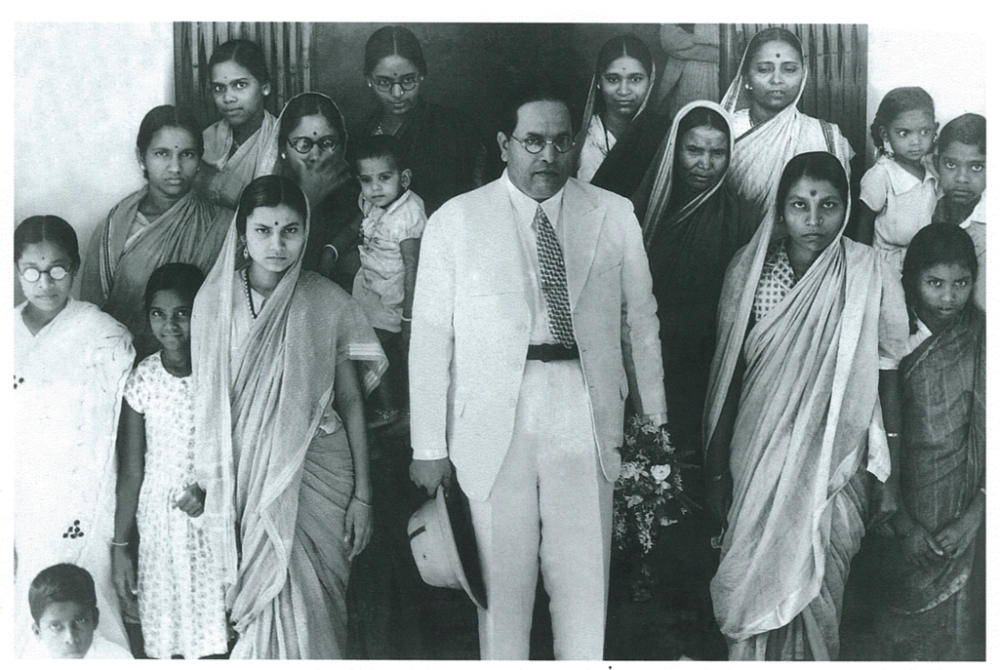
18-19th July (1942) in Dalit History – All India Conference of the Depressed Classes was held at Nagpur
Dr. Ambedkar along with N. Shivraj the President of the All India Conference of the Depressed Classes, reached Nagpur at 9 on the morning to participate in the conference which was from 18 – 19 July. A mammoth crowd of 40,000 people gave a thundering ovation to their chose leader and to the President – elect. Leaders from Punjab, Bengal and Madras had come to attend it. The conference began its session at Mohan Park in Nagpur in a very spacious pandal.
N Shivraj, President of the conference, at the outset congratulated Dr. Ambedkar on behalf of the Depressed Classes on his elevation to the Cabinet and said that this office opened a new avenue for the service to the people.
As Dr. Ambedkar rose to speak, he was cheered vociferously by the vast conference of 70,000 persons. He reviewed the situation in reference to the claims of the Depressed Classes from the Days of the R.T.C to the Cripps proposals and described the Cripps proposals as a great betrayal of the Depressed Classes.
Referring to the demand of the Muslim League for Pakistan, he said that when Jinnah called his community a minority, the other minorities’ derived strength from each other; but now that Jinnah called his community a nation, his breakaway meant that they were left alone to carry on the fight. It might be, he added, that the Muslims might turn out to be the very people against whom they might have to raise the standard of revolt !
“It is a matter of immense satisfaction,” he declared, “that the Untouchables have made great strides along all sides.” He was happy to announce that they had acquired a great degree of political consciousness which few communities in India had acquired. They had made considerable progress in education and secured a foothold in the institutions of public service of the country. Above all the progress made by the untouchable women was encouraging and astonishing. It was a record of progress of which they should be legitimately proud. It was not the result of Hindu charity. It was an achievement which was entirely the result of his own labour. The basis of his politics lay in the proposition that the Untouchables were not a sub-section of the Hindus, but a distinct element in the national life of India, as separate and distinct as the Muslims. Therefore he wanted separate political rights as against the Hindus. Gandhi, he declared, was their greatest opponent. A seat the Depressed Classes in the Executive Council (in the Viceroy’s National Defense Council), he said, was a death- blow to Brahminism.
He offered unconditional support to the war. It was a war, he observed, between dictatorship and democracy, a dictatorship based on not any moral order but on racial arrogance. Nazism was a menace to the future of Man, and so it was their duty to see that Democracy did not vanish for the face of the earth as governing principle of human relationship. They should therefore, strive along with other democratic countries to maintain the basis of democratic civilization. “If democracy dies,” he observed, “it will be their doom.”
“My final words’” he concluded, “of advice to you is educate, agitate and organize; have faith in yourself. With justice on our side, I do not see how we can lose our battle. The battle to me is a matter of joy. The battle is in the fullest sense spiritual. There is nothing material or social in it. For ours is a battle, not for wealth or power. It is a battle for freedom. It is a battle for reclamation of human personality.”
Dr. Ambedkar addressed two more conferences at Nagpur in the same pandal. The one was the Depressed Classes Women’s Conference, which was held under the President-ship of Mrs. Sulochanabai Dongre of Amravati. The conference was an indication of the extent of awakening among the women of these down-trodden classes and was a tribute to its leaders like Mrs. Indirabai Patil and Mrs. Kirtibai Patil. The women’s conference demanded abolition of polygamy and urged institution of pensions and leave with pay for women workers.




Hi! Can you please give me the reference for the above mentioned incident and quote? For research purposes. Thank you.